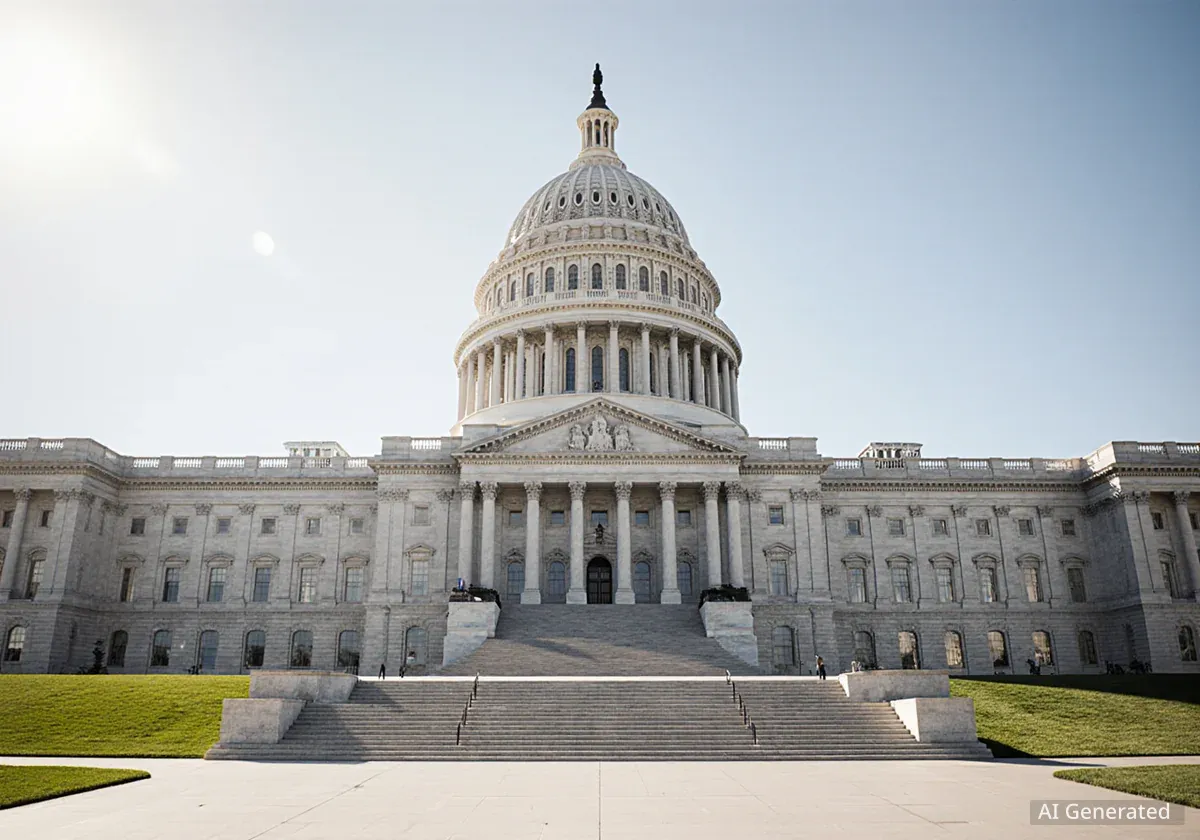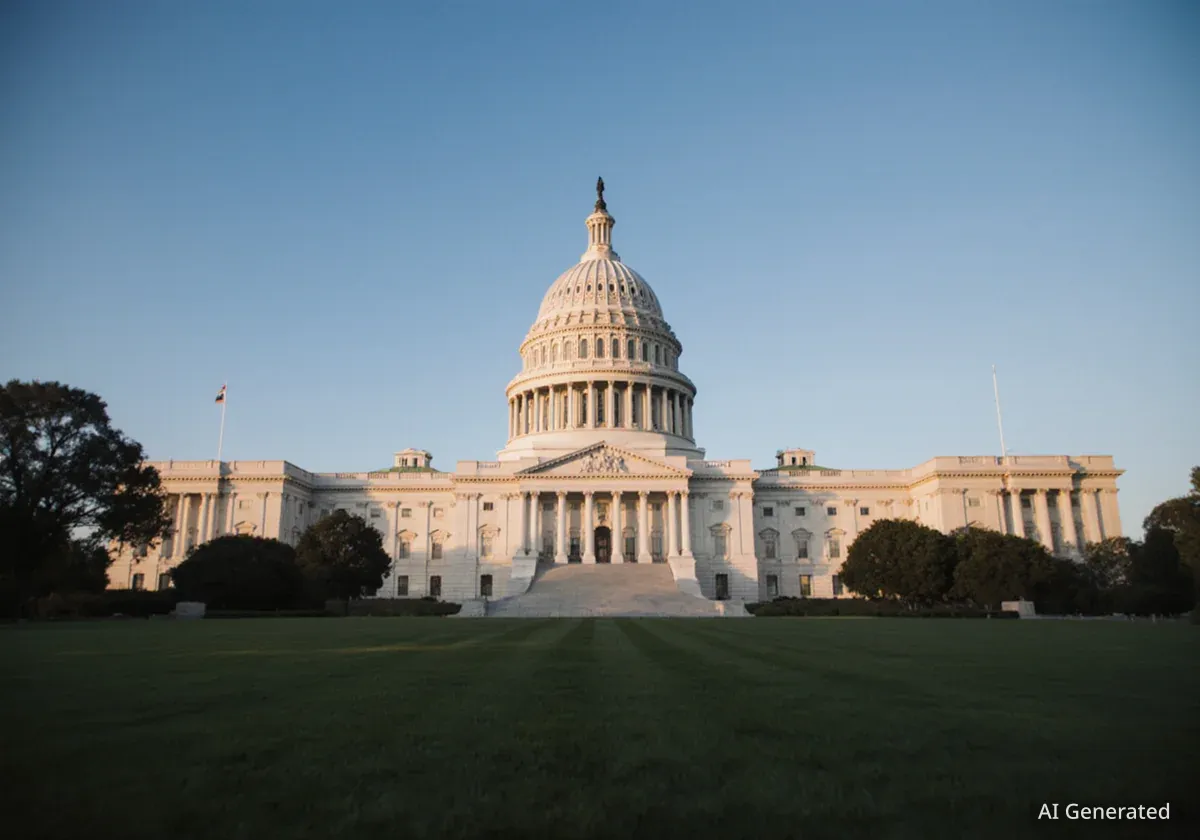Three Chinese citizens have filed a class-action lawsuit in an Austin federal court challenging a new Texas law that restricts real estate ownership for individuals from China, Russia, Iran, and North Korea. The legal challenge, filed Tuesday, argues that Senate Bill 17 is unconstitutional and discriminates against them based on their national origin.
The lawsuit names Texas Attorney General Ken Paxton as the defendant and claims the state law improperly interferes with the federal government's authority over foreign affairs and national security. The plaintiffs seek to block the enforcement of the law, which went into effect on September 1.
Key Takeaways
- A class-action lawsuit has been filed in Austin to challenge Texas Senate Bill 17.
- The law prohibits citizens from China, Russia, Iran, and North Korea from owning or leasing real estate for terms of one year or more.
- Plaintiffs argue the law is discriminatory and violates the U.S. Constitution by overstepping into federal matters of foreign policy.
- The lawsuit includes a Baylor University student who faces housing limitations due to the new restrictions.
Legal Challenge Targets New State Restrictions
A lawsuit filed in the U.S. District Court for the Western District of Texas aims to overturn a recently enacted state law, Senate Bill 17. The plaintiffs, three Chinese nationals with legal status in the United States, contend that the law unfairly targets them and creates significant personal and financial hardship.
According to the court filing, the law has immediate consequences for the plaintiffs. One is a sophomore at Baylor University in Waco, present in the U.S. on an F-1 student visa. The others are individuals who will be forced to sell properties they currently own in the state.
"The law stigmatizes them and their communities, and casts a cloud of suspicion over anyone of Chinese descent who seeks to buy property in Texas," the lawsuit states.
Details of Senate Bill 17
Senate Bill 17, which became effective on September 1, 2025, places a broad prohibition on real property ownership. The law specifically targets citizens, companies, and organizations from four nations designated as foreign adversaries by the U.S. government.
The countries affected are:
- China
- Russia
- Iran
- North Korea
The restrictions cover not only purchasing property but also entering into leases that last for one year or longer. This provision directly impacts students, workers, and other residents from these countries who need stable, long-term housing.
Penalties for Non-Compliance
The law establishes serious penalties for violations. An individual from a designated country who acquires real property in Texas could face a state jail felony charge. For companies and other organizations, the penalty is a fine equal to half of the property's market value.
Impact on Individuals and the Broader Market
The lawsuit highlights the real-world effects of SB 17 on individuals living legally in Texas. The Baylor University student, for example, faces a restricted rental market. The complaint notes that while leases under one year are available in the Waco area, they are less common and often more expensive, as most landlords prefer longer-term tenants.
This limitation narrows his housing choices and could increase his living expenses simply because of his country of origin. For the other plaintiffs, the law mandates that they divest from the Texas real estate market by selling their properties.
Foreign Investment in U.S. Real Estate
According to the National Association of Realtors, Chinese buyers were significant investors in the U.S. property market. Between April 2022 and March 2023, they spent $13.6 billion on U.S. real estate, which accounted for approximately 13% of all foreign purchases during that period.
Constitutional Questions at the Center of the Lawsuit
The core of the plaintiffs' legal argument rests on the U.S. Constitution. Their attorneys argue that SB 17 violates Article VI, commonly known as the Supremacy Clause. This clause establishes that federal law generally takes precedence over state law, especially in areas where the federal government has exclusive authority.
The lawsuit asserts that foreign affairs, national security, and foreign investment are fields regulated exclusively by the federal government. By creating its own policy on foreign property ownership, Texas is allegedly encroaching on federal power.
Conflict with Federal Foreign Policy Authority
The complaint argues that the power to conduct foreign policy is vested in the President and the federal government, not individual states. It suggests that allowing each state to create its own rules regarding foreign nationals could lead to a confusing and contradictory patchwork of laws, undermining a unified national stance.
The filing points to a long history of legal precedent and executive orders that centralize foreign relations at the federal level. The plaintiffs' position is that Texas cannot create its own foreign policy through real estate legislation. The office of Texas Attorney General Ken Paxton has been asked for comment on the lawsuit.





